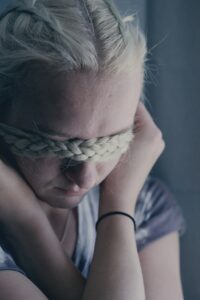A national safeguarding review has been launched into child sexual abuse within the family environment after a “concerning number” of cases.
 Safeguarding leaders launched the national review to examine cases in more depth and look at how practitioners and agencies could improve the identification, assessment and response to instances of child sexual abuse within the family.
Safeguarding leaders launched the national review to examine cases in more depth and look at how practitioners and agencies could improve the identification, assessment and response to instances of child sexual abuse within the family.
The Child Safeguarding Practice Review Panel have commissioned the Centre of Expertise on Child Sexual Abuse (CSA Centre) to lead the review, which was triggered by a “concerning number of safeguarding cases featuring this type of abuse,” according to a letter written by panel chair Annie Hudson to the education secretary Gillian Keegan.
Writing in November of this year, she told the education secretary that the review would “address how multi-agency local and national safeguarding practice can improve to reflect better the evidence on how to protect and respond to children experiencing this specific type of harm.”
The panel is hoping to report on the review by summer 2024.
Child sexual abuse probe will take two strands
 The safeguarding probe will comprise of two strands. Strand A will focus on how practitioners can identify and address hidden abuse within the family, such as where perpetrators are using coercive control or deception.
The safeguarding probe will comprise of two strands. Strand A will focus on how practitioners can identify and address hidden abuse within the family, such as where perpetrators are using coercive control or deception.
This strand will also examine how social workers and others can assess cases based on evidence, such as the child’s voice or changes in their behaviour, rather than by assuming too much from non-abusing parents about their ability to keep the child safe.
Meanwhile, Strand B will look at the challenges and barriers to practitioners recognising and responding to indicators of child sexual abuse.
It will also explore what triggers practitioners to suspect and then report child sexual abuse and what measures can be taken to improve professional confidence in this area.
The national safeguarding review will draw upon engagement with children’s services practitioners, safeguarding partners and young people and families.
Child sexual abuse remains underreported
Despite the Child Safeguarding Practice Review Panel flagging a concerning number of familial child sexual abuse cases recently, experts suggest that there is still substantial underreporting in this area.
In 2021-22, there were 33,990 children’s social care assessments in England that identified child sexual abuse as a concern. A similar figure was recorded in 2022-23. This represents an increase of 15% from 2015, when the information was first published. But the CSA Centre reported that this was far below the 500,000 children that it estimated had fallen victim to sexual abuse each year.
In addition, children protection plans for which child sexual abuse was the initial category of abuse have seen a 15.2% drop from 2018-19 and 2022-23.
The Independent Inquiry into Child Sexual Abuse (IICSA) also stated that there was systemic under-identification of child sexual abuse in its final report last year.
Mandatory reporting of child sexual abuse
 This report recommended that professionals and others working with children should be mandated to inform the police or children’s social care services of any cases of abuse they had witnessed, had disclosed to them or had recognised the signs of. They said that a failure to report disclosed or witnessed abuse should be a criminal offence.
This report recommended that professionals and others working with children should be mandated to inform the police or children’s social care services of any cases of abuse they had witnessed, had disclosed to them or had recognised the signs of. They said that a failure to report disclosed or witnessed abuse should be a criminal offence.
The government has agreed to implement mandatory reporting, but its proposals fall short of what the IICSA recommended.
The Home Office opted not to make failures to report abuse a criminal offence and have not mandated that practitioners must make a report when they recognise signs of child sexual abuse, only if it is disclosed to them or they witness it.
The IICSA said that the introduction of mandatory reporting of child abuse would lead to a significant increase in the number of children identified as needing protection, but the Home Office has assessed that this will not happen with its plan.
Safeguarding children is everyone’s responsibility
 First Response Training (FRT) is a leading national training provider delivering courses in subjects such as health and safety, first aid, fire safety, manual handling, food hygiene, mental health, health and social care, safeguarding and more.
First Response Training (FRT) is a leading national training provider delivering courses in subjects such as health and safety, first aid, fire safety, manual handling, food hygiene, mental health, health and social care, safeguarding and more.
They work with a large number of early years, schools and childcare providers, as well as colleges, youth groups and children’s services. Their courses include Safeguarding Children.
A trainer from FRT says:
“Abuse can devastate lives and vulnerable young children need prompt help and support. It’s vital that anyone who works with children and young people is aware of their responsibility for safeguarding children and that they can recognise the signs that indicate a child may be experiencing abuse, and know the correct action to take in response.”
For more information on the training that FRT can provide, please call them today on freephone 0800 310 2300 or send an e-mail to info@firstresponsetraining.com.
